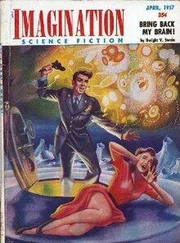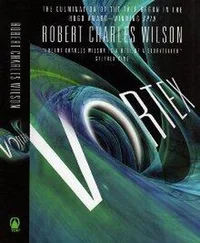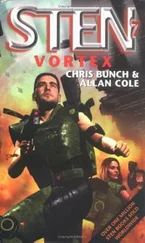“Well, I say never! Never! Never!” Vorster’s powerful fists crashed into the table one, twice, and then a third time. His face seemed carved out of stone.
“This is the hour of crisis, when the danger is greatest. If we can survive this time of testing, if we can live through this purging fire, we shall emerge a stronger and cleaner nation!”
Vorster’s tone grew sharper, angrier.
“A few of you even want me to step down. To retire to some country home in the Transvaal. To vanish into obscurity so that you can step up one rung and make your own climbr to power!”
His rough, grating voice rang through the entire room.
“Well, my friends, it shall not be. I will not resign. I will not shirk this burden. I will not leave the duty God has called me to! Only I have the vision needed to save our beloved fatherland. I will not abandon my people!”
He finished speaking and stood glaring at them in the embarrassed silence that followed his tirade.
Van der Heijden caught several of his fellow ministers covertly exchanging appalled glances, and he made a mental note to tighten surveillance on them. Recent events had shown only too clearly that not all of his leader’s enemies were black or colored or foreign.
Malherbe, pale and obviously shaken by Vorster’s words, finally rallied far enough to ask, “And if the country abandons you? Even our own Afrikaners are rejecting your authority. “
“You cannot say who accepts or rejects me!” Vorster pointed accusingly at the industries minister, his voice rising again in pitch and volume.
He paused, then spoke more softly.
“As soon as I can, I will go to my fellow Afrikaners. I will speak to them and explain fully what has happened. And once they have heard me out, those who have foolishly allowed communist lies to confuse them will come streaming back to our open arms!”
More mouths around the table dropped open and then as quickly snapped shut.
Too many of them had already learned
the hard way not to challenge any of Vorster’s cherished illusions.
“In the meantime, my friends, we must weather this storm of lies and vicious attacks with whatever measures are necessary.” He turned to
Fredrik Pienaar, the small, skeletal minister of information.
“Schedule a television address for tomorrow morning. I am going to declare an even stricter National State of Emergency. We will forbid any assembly, any whatsoever, until this crisis has passed. And the security forces will impose a nationwide dusk-to-dawn curfew.”
He paused, thinking.
“Heitman.”
The minister of defense warily met his leader’s stern gaze.
“Yes, Mr.
President?”
“Expand the reserve call-up. I want every trained man in South Africa under arms as soon as possible! Use the new troops to restore order and build more detention camps-as many as are needed.”
That stung Malherbe into speaking again.
“Mr. President, we simply can’t afford such a thing! Total mobilization would wreck our economy beyond repair. If you insist on this, we face a depression as well as defeat in war!”
Vorster’s temper finally erupted beyond control.
“And we do not need your negative ideas paralyzing this government! Minister Malherbe, you are relieved of your duties!”
Van der Heijden felt a moment’s elation. First Muller and now Malherbe.
Another of his enemies had managed to cut his own throat-though only figuratively this time, But his elation faded in the face of a whispering inner fear. The minister knew his job. What if Malherbe’s dire predictions were accurate?
Vorster snarled at the shocked official, “Only my memory of your past service stops me from having you arrested.” Contempt dripped from every word.
“Go home-, Helmoed, and rest. You are not equal to the struggle, but that is not your fault. This is not a task for ordinary men.”
White-faced and shaking, Malherbe rose from his chair and left the room without looking back.
Vorster ignored his departure. Instead, he turned to the other men sitting in stunned silence and smiled.
“Now,
gentlemen, let us discuss a more joyful topic. I believe you’ve all seen
Fredrik’s proposal that we make Afrikaans, our sacred tongue, the nation’s only official language .. …. Outside the chamber, an Army messenger trotted up with a manila folder stamped SECRET. He was about to enter when a sour-faced aide stopped him.
“You can leave that with me, Captain. I’ll take care of it for you.”
The officer shook his head.
“I’m afraid not. I have orders to deliver this to the President personally.” The aide shrugged, unimpressed and eager to show it.
“Then you’ll have to wait. The President himself left orders of his own. No one is to be admitted until the cabinet meeting ends. He folded his arms and stared at the wall with studied indifference.
“And when will that be?”
The aide checked his watch and shook his head.
“An hour more? Perhaps two?
Who can say? They’ll finish when they finish.” He held out his hand again.
“Come, Captain. Just give it to me and be on your way. No point in standing idle, is there?”
“You don’t understand! This is an emergency!” The officer glanced quickly around and lowered his voice before continuing.
“We’ve received rumors that troops in the Cape Town garrison may mutiny!”
“Rumors?” The aide arched a supercilious eyebrow.
“I hardly think those are worth troubling the cabinet with. In any event, President Vorster has already said that he doesn’t want to hear any more bad news for the moment.
You’ll have to wait until the meeting is over.”
“But…
“It can’t be helped.” The aide stood directly in front of the door, physically blocking it.
Muttering under his breath, the soldier stomped away.
Like their superiors, South Africa’s lower-level government officials were learning to ignore troublesome realities.
NOVEMBER 11HEADQUARTERS, 16TH INFANTRY BATTALION, CASTLE OF GOOD
HOPE, CAPE TOWN, SOUTH AFRICA
Redbrick ramparts, bastions, and cobblestone courtyards marked the Castle of Good Hope as a relic of the seventeenth century. Patches of scarlet, pink, white, and yellow flowers, emerald-green lawns, and museums full of precious paintings, Cape silver, and delicate Asian porcelain identified that same old fortress as a center of beauty and culture. And the scattering of armored cars, khaki-clad soldiers, and sandbagged machinegun positions marked it as a military garrison of South Africa’s crumbling late-twentieth-century Republic.
Ordinarily, Maj. Chris Taylor found the sight of the castle’s immaculately maintained grounds comforting. They gave him a sense of the permanence and order now in such short supply in Cape Town’s troubled streets.
But not today.
Today, he decided that he hated the cold, gray fortress walls, hated his job, and especially hated his new commanding officer, Col. Jurgen Reitz.
He stormed down the long hallway toward his own office, face tight with suppressed fury,
He’d just left Reitz’s office with a new set of orders even more absurd than the last.
Taylor was a compact, stocky man, slightly shorter than average height, with sandy-blond hair and a long-jawed face. Despite being a reservist and in his late forties, he was in good shape. Long years of labor in his family-owned vineyards and fruit-tree orchards had seen to that.
As he walked, he twisted his neck from side to side, trying to ease the pain from tension-knotted muscles. Calm down, he thought, don’t let the
Afrikaner bastard get to you.
Any meeting with Reitz was irritating. Taylor’s Citizen Force unit had been one of two mobilized last August and sent to Cape Town on security duty-allowing the Permanent Force battalion ordinarily stationed there to be sent north to Namibia.
Читать дальше












